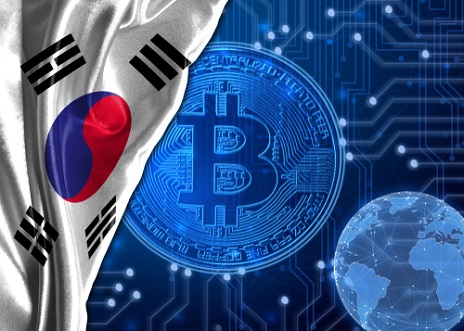Crypto in South Korea – ‘Metaverse Seoul’, NFT gaming ban and the launch of STOs
Editor’s Note: With so much market volatility, stay on top of daily news! Get caught up in minutes with our speedy summary of today’s must-read news and expert opinions. Sign up here!
(Kitco News) – South Korea continues to be at the forefront of the adoption and integration of blockchain technology as the Asian nation has launched a virtual replica of its capital city, Seoul, the first stage in a project that has been dubbed “Metaverse Seoul.” South Korea said the project is reportedly the first city-backed public metaverse platform in the world.
According to a press release announcing the project, Metaverse Seoul is a three-part project that is expected to be completed in 2026. During the first stage, Metaverse Seoul is focused on improving the efficiency of public administration services and will allow citizens to use personal avatars to explore the platform and access a variety of services such as obtaining proof of citizenship, tax counseling, youth mentoring, and a support center for struggling businesses.
The second stage, which is expected to go live in 2024, will expand the available services to include real estate counseling and connecting foreign investors with local industries. The third stage will focus on integrating virtual and augmented reality technology to help manage the city’s infrastructure. There are also plans to introduce blockchain technologies including cryptocurrency.
Court rules against P2E game
As evidence that the country also remains focused on the regulation side of the crypto industry, a court in South Korea has ruled against the release of a blockchain-based play-to-earn (P2E) game after determining that in-game non-fungible tokens (NFT) promote speculation.
According to a report from Yonhap News Agency, South Korean game developer SkyPeople, the game studio behind the NFT game Five Stars, filed an appeal to an earlier ruling arguing that in-game items and characters minted as NFTs are not rewards but records of ownership.
The Seoul Administrative Court disagreed with that line of thinking and dismissed SkyPeople’s appeal of the Game Rating Administration Committee’s decision not to process the age rating for Five Stars. In order to be released to the public in South Korea, all video games must acquire an age rating from the Committee.
At the center of Five Stars’ problem is the fact that players can mint characters and items into tradable NFTs on the Klaytn blockchain. The court said NFTs cannot be classified simply as game items if they are also traded on exchanges.
The Game Rating Administration previously banned games that involve cryptocurrencies or NFTs, citing a local law that prohibits firms from promoting speculative behaviors to players via cashable rewards.
Since then, South Korean P2E game makers have only released their blockchain-based games abroad and await the fulfillment of a promise made by South Korean president Yoon Suk-yeol that he would abolish the play-to-earn ban. Yoon previously said that developing technologies related to the metaverse is a national priority.
Companies preparing to launch security token offerings
As further evidence that both the public and private sectors of South Korea are dedicated to blockchain technology, a report from Busan Ilbo indicates that multiple high-profile companies in the country are preparing to launch security token offering (STO)-related services this year.
According to the report, multiple firms are now waiting on the Financial Services Commission (FSC) to publish industry guidelines on how to offer STOs in a legally compliant manner. The FSC is scheduled to make an announcement about STOs on Jan. 19.
While details about the announcement are scarce, multiple domestic securities companies have been “busy preparing digital asset platforms” that can handle and/or issue tokens in anticipation that the FSC will give them the go-ahead to offer such services later this month.
The companies that are looking to offer STOs to help grow South Korea’s digital asset ecosystem include the Korea Exchange – the nation’s only securities exchange operator – banking giants Kookmin and Shinhan, and Kiwoom Securities.
The city of Busan is also looking to make STOs an integral part of its Digital Assets Exchange project, which is being developed in conjunction with multiple top international cryptocurrency exchanges, including Binance.
At present, all forms of cryptoasset issuance are outlawed in South Korea, but both the FSC and president Yoon Suk-yeol have indicated that they intend to implement changes to this rule.
Disclaimer: The views expressed in this article are those of the author and may not reflect those of Kitco Metals Inc. The author has made every effort to ensure accuracy of information provided; however, neither Kitco Metals Inc. nor the author can guarantee such accuracy. This article is strictly for informational purposes only. It is not a solicitation to make any exchange in commodities, securities or other financial instruments. Kitco Metals Inc. and the author of this article do not accept culpability for losses and/ or damages arising from the use of this publication.
Credit: Source link


 Bitcoin
Bitcoin  Ethereum
Ethereum  XRP
XRP  Tether
Tether  Solana
Solana  Dogecoin
Dogecoin  USDC
USDC  Cardano
Cardano  Lido Staked Ether
Lido Staked Ether  TRON
TRON  Avalanche
Avalanche  Sui
Sui  Wrapped stETH
Wrapped stETH  Chainlink
Chainlink  Toncoin
Toncoin  Shiba Inu
Shiba Inu  Stellar
Stellar  Wrapped Bitcoin
Wrapped Bitcoin  Polkadot
Polkadot  Hedera
Hedera  WETH
WETH  Bitcoin Cash
Bitcoin Cash  Uniswap
Uniswap  Litecoin
Litecoin  Pepe
Pepe  LEO Token
LEO Token  Hyperliquid
Hyperliquid  Wrapped eETH
Wrapped eETH  NEAR Protocol
NEAR Protocol  Ethena USDe
Ethena USDe  Internet Computer
Internet Computer  USDS
USDS  Aptos
Aptos  Aave
Aave  Mantle
Mantle  Bittensor
Bittensor  POL (ex-MATIC)
POL (ex-MATIC)  Cronos
Cronos  Render
Render  Ethereum Classic
Ethereum Classic  Artificial Superintelligence Alliance
Artificial Superintelligence Alliance  Virtuals Protocol
Virtuals Protocol  Arbitrum
Arbitrum  Ethena
Ethena  MANTRA
MANTRA  Filecoin
Filecoin  WhiteBIT Coin
WhiteBIT Coin
Comments are closed.